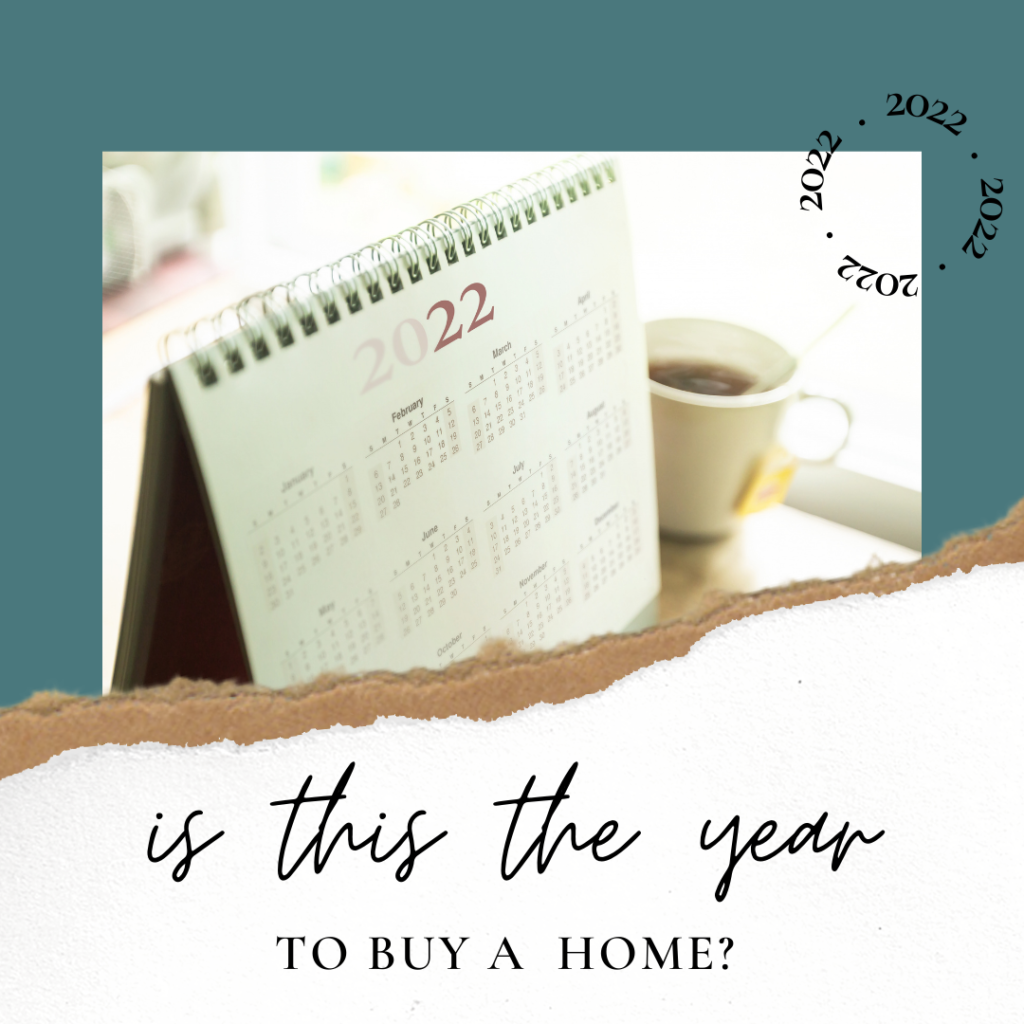Is 2022 The Year to Buy a Home?

If you or anyone you know has been wanting to buy a home but sat it out last year because of how competitive the real estate market was here, this could be the year to make it happen.
Even though interest rates inched up slightly at the end of the year, they are still historically low. Plus, since so many people moved last year, the predictions are that the real estate market won’t be as competitive—what a relief!
Buying a home is a big deal and isn’t something that should happen overnight, so if you are thinking this might be the year to make your move, you’ll want to start planning and preparing early. That way when “the one” pops up, you can make it yours.
The First Step
If you’re a first-time buyer, the best first step is to become educated about the process of buying a home. There is definitely a learning curve that everyone needs to go through in the beginning and that’s why I always like to start with a educational meeting just talking about what’s involved in buying a home.
If it’s your second or third time around, you likely also need to sell too, which means juggling buying and selling at the same time so you don’t end up with two homes or no home. Since there is so much involved with buying and selling at the same time, planning things out well before you want to move is a must. And, again, understanding the process and what needs to happen when is the best first step.
After understanding the high-level overview of what happens when, the next steps are:
Learn about current mortgage loan options. There are so many loan options out there and now is the time to see what is available. I can recommend reputable lenders you can meet with to gather information. These days, getting a mortgage is not a “one-sized fits all” thing. The right lender and mortgage program really depends on your long and short terms goals and financial situation.
The most important part of the mortgage piece, though, is truly understanding how your desired monthly payment and downpayment equates into the right purchase price for you. Even the most savvy people don’t understand how the math works, but you should before you start looking at homes.
Visit open houses to scope out the local market. After you understand the numbers, the next step is to check out certain neighborhoods or homes (even virtually) in terms of cost and features as an “educational” step. This will help you narrow down the location(s) and features that are important to you. That way you’ll be more efficient when you actually house hunt and are ready to buy. With condos, you’ll also get an idea of monthly HOA fees and amenities in different buildings.
Find out about assistance programs for buyers. Did you know that there are government assistance programs that can make buying a home much more affordable? You’ll be amazed to see what is available for mid-income buyers, first-time buyers, veterans, city or state employees, etc. Programs from local housing authorities can help with down payment or low interest loans; and many buyers can qualify for this assistance.
Strengthen your credit score and build credit history. Your FICO credit score is your gateway to a good mortgage since lenders use it to determine your risk as a borrower. So the higher your score, the better your loan options. And, if you’re a couple, then BOTH of you will need to work on your credit!
Right now lenders are looking at a score in the higher 700s for most loan products. Some government loans, such as FHA loans, will consider lower scores.
It can take 6 months or more to improve your score, so start today. Pay your bills on time, don’t take on any large debt, and double check your score for inaccuracies.
Know what monthly mortgage payment you can afford. What a lender says you CAN afford can be very different in what you are willing to spend each month. Determine what the monthly payment should be. No one wants to be stretched too much and become “house poor”.
Save for a down payment. Cut expenses and save, save, save right now! No matter if you get a 3% down loan or a conventional 20% down loan, lenders still want to see if you have enough cash reserves in the bank. Remember, owning a home isn’t only its purchase price, but it includes other costs such as taxes, insurance, maintenance, and possible HOA fees. With a larger savings account, a lender knows you’re financially responsible and less of a risk.
As you can see, it’s important to start planning early if you want to buy a home this year. That way you can be ready for “the one” when it comes up. I’m here to help you make it possible. If you are ready to get started, our first step is to schedule a meeting to talk through the steps and create a specific plan for you. You can schedule a time here https://calendly.com/elizabethoakleyrealestate.
Hi, there!
Hi, I’m Elizabeth Oakley. If you are buying or selling an older home in Oakwood, Kettering, or Centerville, Ohio, I'm here to expertly guide you! I want my clients to be able to enjoy their homes and feel confident in their decision. My goal is to educate my clients on what parts of their home will be easy to maintain and update versus items which may cause a headache or lead to large expenses.
Let's Meet
Contact
(937) 286-7452 (cell)
2331 Far Hills Ave
Oakwood, Ohio 45419
elizabeth@elizabethoakleyrealestate.com
Buy
My Listings
Sell
All Articles
schedule your free consultation